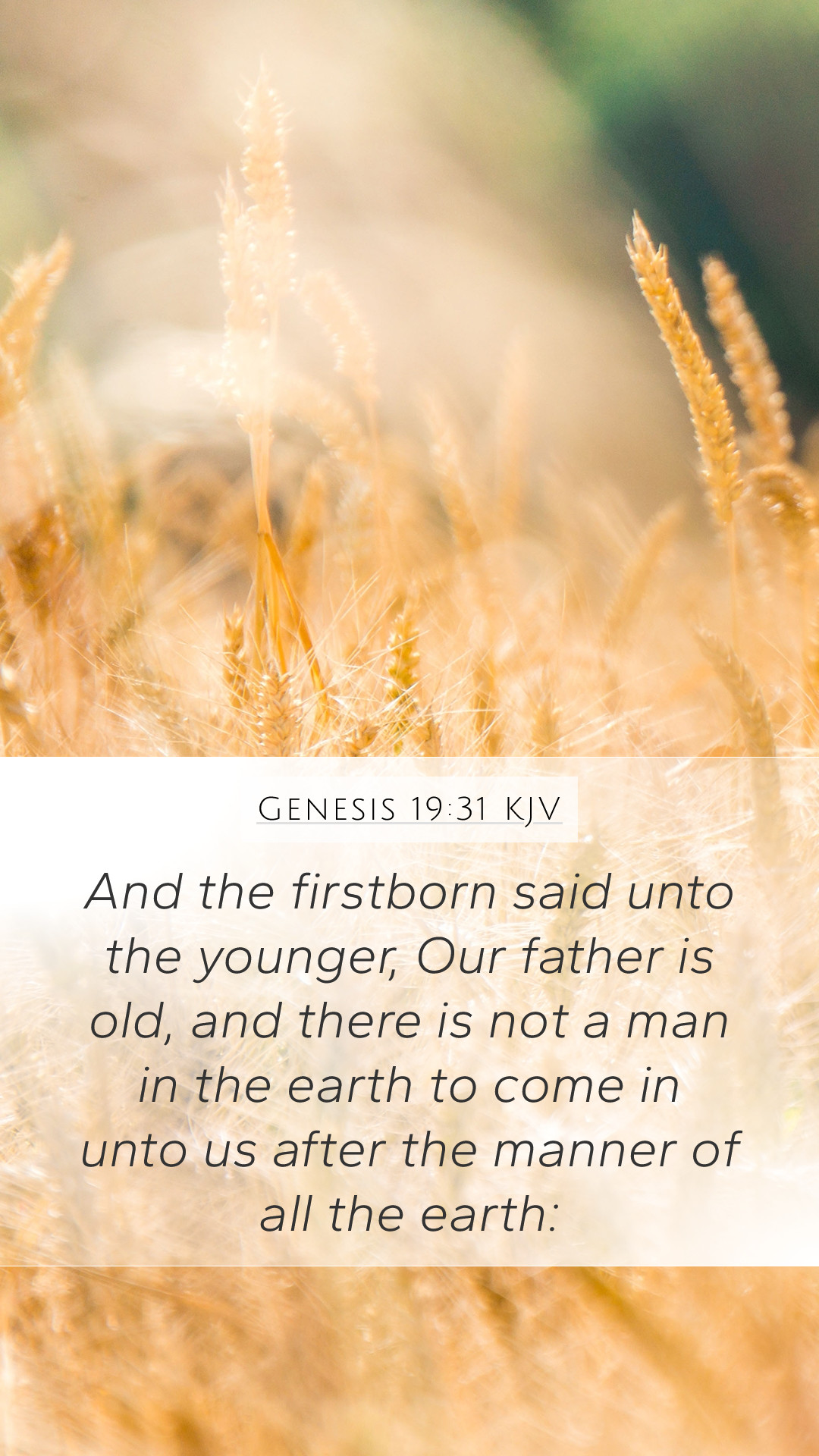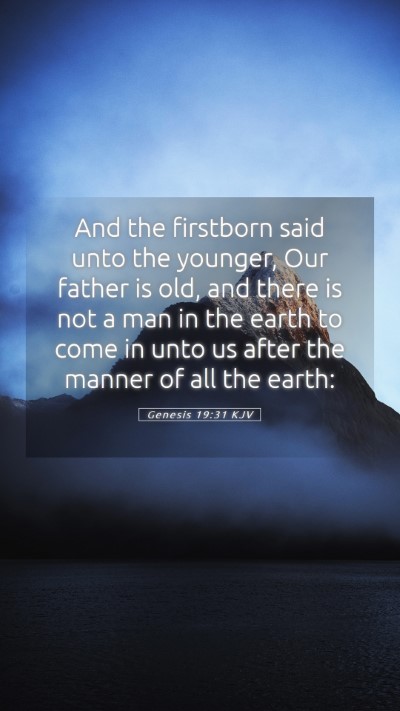Understanding Genesis 19:31
Genesis 19:31 states: "And the firstborn said unto the younger, Our father is old, and there is not a man in the earth to come in unto us after the manner of all the earth."
Overview of the Verse
This verse occurs in the aftermath of the destruction of Sodom and Gomorrah, where Lot and his daughters have taken refuge in a cave. The context is critical to understanding this passage, as it highlights the daughters' concern for their lineage in a world that has been devastated. Their father, Lot, is seen as the sole remaining progenitor, and their desperate situation leads to deeply troubling decisions.
Bible Verse Meanings
The verse encapsulates a moment of desperation and concern for survival within the context of ancient customs regarding inheritance and family. The daughters believe that the destruction of their world leaves them with no future progenitors, which leads them to take matters into their own hands in a profoundly tragic manner.
Insights from Commentaries
-
Matthew Henry: Henry emphasizes the desperation that led to the daughters’ decision. He notes that the isolation they face in the cave contributes to irrational thinking, a common theme in the aftermath of trauma. It underscores the degradation of moral values when individuals find themselves in dire situations.
-
Albert Barnes: Barnes highlights the culture of the time which placed significant value on lineage and descendants. He also notes that the daughters’ actions stem from a lack of faith in God’s provision, implying a deviation from trust in divine providence in favor of human scheming.
-
Adam Clarke: Clarke discusses the themes of human desperation and the flawed logic that leads to poor decisions. He suggests that the daughters' thinking illustrates a disconnection from the moral framework of their faith, reflecting how distress can cloud judgment.
Scripture Analysis
This verse serves as a reflection on human nature in times of crisis. It indicates how dire circumstances can lead to actions that are against moral law as seen in their plan to ensure their family line continues through incest, which was not condoned in their faith or community. The passage reveals deeper themes of fear, manipulation of circumstances, and human complications amidst divine judgment.
Biblical Exegesis
Understanding this verse requires examining the historical and cultural contexts of the time. In an ancient Near Eastern context, where lineage and heritage were critical, the daughters’ actions reveal a tragic element of survival instinct overshadowed by moral decay.
Related Bible Verses
To deepen your understanding of Genesis 19:31, consider the following cross-references:
- Genesis 19:30 - Lot’s retreat to the cave signifies total loss and isolation.
- Genesis 19:32-36 - The ensuing story details the consequences of the daughters' actions.
- Genesis 38:8-10 - A parallel narrative of Judah's family dynamics and similar themes of desperation.
Application of the Verse
This verse and its implications can be unsettling, yet they serve as a powerful reminder of the need for faith in God’s provision, even amid crisis. It offers crucial Bible study lessons regarding reliance on divine wisdom rather than human understanding in challenging times.
Conclusion
Genesis 19:31 illustrates profound themes of fear, desperation, and moral dilemmas. Through examining the commentary from notable biblical scholars, we gain insights into the complex human experiences reflected in scripture. As we navigate our own lives and the challenging ethical decisions we face, this passage warms us against succumbing to fear and urges us towards greater faith and understanding of God's plan.


